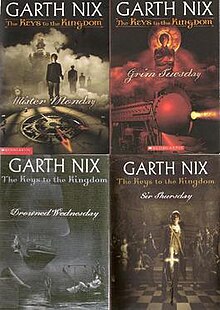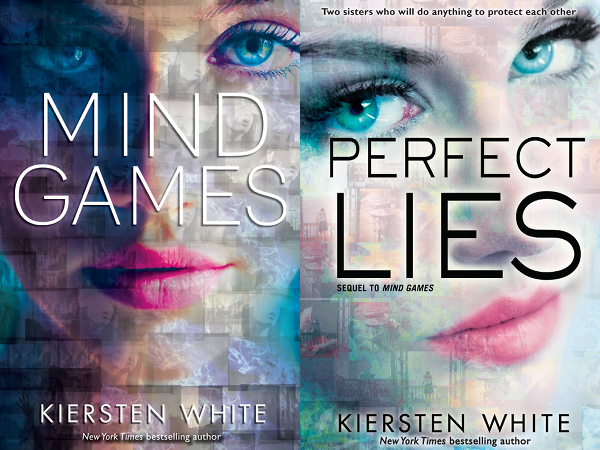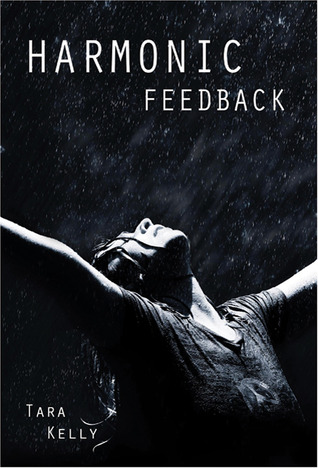Looking back on the hot mess that was 2016, I also find myself looking back on books I read and reviewed. I often find that my opinion of a book evolves. This is certainly true for some of the books which I have reviewed here. A few of those have been...
Mister Monday by Garth Nix (MG fantasy/portal fantasy)
I love middle grade fiction, and this one of the more imaginative series I've had the pleasure of reading. I want to recap it because I'd like to go more in-depth about how disability is treated. [Trigger warnings: description of asthma attack and near-death experience]
 The main character is picked as the Chosen One because an asthma attack was going to kill him that day. This is a subversion of the "disabled characters are more expendable because their deaths make more 'sense'" trope. Instead of dying like he's "supposed" to, he becomes the Chosen One. I appreciate this.
The main character is picked as the Chosen One because an asthma attack was going to kill him that day. This is a subversion of the "disabled characters are more expendable because their deaths make more 'sense'" trope. Instead of dying like he's "supposed" to, he becomes the Chosen One. I appreciate this.
The magic Key he receives lets him breathe without difficulty. However, before all this, Arthur didn't want to be dependent on his inhaler. Now that he has a magical aid, he's still reluctant to rely on it for the same reason -- even though it does bring him relief. The Key does not magically cure his asthma.
The magic has negative side effects, and if his body becomes too magic-saturated, he'll never be able to go back to his old human life. He'd rather be himself with asthma than a superpowered immortal. So Arthur tries to use as little magic as possible even though it relieves his symptoms.
There's also a crapton of religious, mythological, pop culture, and f/sf references worked in throughout the series, and it's wonderful.
Mind Games by Kiersten White (YA science fiction/thriller)
 [Tws for this review: ableism, medical abuse/neglect, suicidal ideation]
[Tws for this review: ableism, medical abuse/neglect, suicidal ideation]
I don't have as much to say about this one. Mainly, I complained about how the evil corporation didn't appear to take care of its assets. They let Fia go around while suicidal and a danger to herself and others and just sort of say, "meh." While their actions were nonsensical from a mental healthcare standpoint, upon reflection, I think the reader is meant to infer that the corporation is deliberately withholding care from both sisters. This keeps them more dependent on the corporation and more obligated to each other. Annie is seriously worried about Fia's mental health, while Fia is prejudiced about Annie's abilities as a blind person.
This still isn't my favorite book in the world, but it's a thrilling thriller. I did become more interested in its portrayal of disability after learning that the author is also mentally ill and open about it.
Harmonic Feedback by Tara Kelly (YA contemporary)
[Tws: bimisia/bi-erasure, stigma towards questioning sexuality, addiction, discussion of rape and shaming survivors, death by drug overdose]
This book has an autistic protagonist and also deals with addiction. Its main character is diagnosed with Asperger's, anxiety, and ADHD. Many people have multiple and overlapping diagnoses in real life, and the book reflects that.

My feelings on this book are incredibly mixed and I feel more negatively about it the more time goes on. While the anti-medication attitude made me wince, it's different when an author is drawing from their own lived experiences -- this book is own voices for ADHD. Since there's an assumption that ADHD and ADD are boys' diagnoses, it can be helpful for someone to see a portrayal of a girl with ADHD. Many women don't get an accurate diagnosis until adulthood. Reading Harmonic Feedback could actually help someone see an experience that isn't recognized very often.
On the other hand, this book is undeniably bimisic, and the rape-as-backstory is handled with all the grace and thoughtfulness of Donald Trump tweeting from the toilet at 3am.
Naomi's bisexuality is portrayed as part of her attention-seeking nature, and another character, Justin, tells her she's just a straight girl kissing other girls for attention. He says that Naomi doesn't trigger his "gaydar." This enforces the stereotype that bisexuals are "not gay enough" to count.
Worse, he says that she's not the first straight girl ever to kiss another girl for shock value. This erases the experiences of not just Naomi but of all bi girls. The book is also hostile to questioning teens. There is nothing wrong with experimenting with one's sexuality.
While a girl with ADHD might have a positive experience with this book, a bisexual, queer, or questioning girl might read Harmonic Feedback and get a hurtful message.
Harmonic Feedback also deals with addiction, another aspect of disability. The two other main characters, Naomi and Justin, are or have been addicted to drugs. Justin is recovering from addiction with the help of a supportive family, while Naomi, who lacks that support system, isolates herself further with drugs and finally dies of an overdose.
I guess Justin's story shows that recovery is possible. However, it introduces a horrifying narrative about drug use and rape that is never challenged. Justin tells Drea that when he was on drugs, he had a lot of sex that he can't or can barely remember.
Jesus H. Christ, having sex with a drug-impaired 15-year-old boy -- who can't give informed consent or even remember his encounters -- is rape. Like, multiple rapes over a long period of time.
But instead of acknowledging this, Justin hastens to assure Drea that he "got checked" for STDs and "is clean." And...that's the extent of their conversation. Worse, he acts like he's ashamed of himself for not remembering or caring about the sex because all he cared about was drugs. The rapes are portrayed as his fault -- as an inevitable consequence of teen drug use.
This is...bad, y'all. In so many ways.
The writing is bewitching, but it fails too hard in other areas to ignore.
Mister Monday by Garth Nix (MG fantasy/portal fantasy)
I love middle grade fiction, and this one of the more imaginative series I've had the pleasure of reading. I want to recap it because I'd like to go more in-depth about how disability is treated. [Trigger warnings: description of asthma attack and near-death experience]
 The main character is picked as the Chosen One because an asthma attack was going to kill him that day. This is a subversion of the "disabled characters are more expendable because their deaths make more 'sense'" trope. Instead of dying like he's "supposed" to, he becomes the Chosen One. I appreciate this.
The main character is picked as the Chosen One because an asthma attack was going to kill him that day. This is a subversion of the "disabled characters are more expendable because their deaths make more 'sense'" trope. Instead of dying like he's "supposed" to, he becomes the Chosen One. I appreciate this.The magic Key he receives lets him breathe without difficulty. However, before all this, Arthur didn't want to be dependent on his inhaler. Now that he has a magical aid, he's still reluctant to rely on it for the same reason -- even though it does bring him relief. The Key does not magically cure his asthma.
The magic has negative side effects, and if his body becomes too magic-saturated, he'll never be able to go back to his old human life. He'd rather be himself with asthma than a superpowered immortal. So Arthur tries to use as little magic as possible even though it relieves his symptoms.
There's also a crapton of religious, mythological, pop culture, and f/sf references worked in throughout the series, and it's wonderful.
Mind Games by Kiersten White (YA science fiction/thriller)
 [Tws for this review: ableism, medical abuse/neglect, suicidal ideation]
[Tws for this review: ableism, medical abuse/neglect, suicidal ideation]I don't have as much to say about this one. Mainly, I complained about how the evil corporation didn't appear to take care of its assets. They let Fia go around while suicidal and a danger to herself and others and just sort of say, "meh." While their actions were nonsensical from a mental healthcare standpoint, upon reflection, I think the reader is meant to infer that the corporation is deliberately withholding care from both sisters. This keeps them more dependent on the corporation and more obligated to each other. Annie is seriously worried about Fia's mental health, while Fia is prejudiced about Annie's abilities as a blind person.
This still isn't my favorite book in the world, but it's a thrilling thriller. I did become more interested in its portrayal of disability after learning that the author is also mentally ill and open about it.
Harmonic Feedback by Tara Kelly (YA contemporary)
[Tws: bimisia/bi-erasure, stigma towards questioning sexuality, addiction, discussion of rape and shaming survivors, death by drug overdose]
This book has an autistic protagonist and also deals with addiction. Its main character is diagnosed with Asperger's, anxiety, and ADHD. Many people have multiple and overlapping diagnoses in real life, and the book reflects that.

My feelings on this book are incredibly mixed and I feel more negatively about it the more time goes on. While the anti-medication attitude made me wince, it's different when an author is drawing from their own lived experiences -- this book is own voices for ADHD. Since there's an assumption that ADHD and ADD are boys' diagnoses, it can be helpful for someone to see a portrayal of a girl with ADHD. Many women don't get an accurate diagnosis until adulthood. Reading Harmonic Feedback could actually help someone see an experience that isn't recognized very often.
On the other hand, this book is undeniably bimisic, and the rape-as-backstory is handled with all the grace and thoughtfulness of Donald Trump tweeting from the toilet at 3am.
Naomi's bisexuality is portrayed as part of her attention-seeking nature, and another character, Justin, tells her she's just a straight girl kissing other girls for attention. He says that Naomi doesn't trigger his "gaydar." This enforces the stereotype that bisexuals are "not gay enough" to count.
Worse, he says that she's not the first straight girl ever to kiss another girl for shock value. This erases the experiences of not just Naomi but of all bi girls. The book is also hostile to questioning teens. There is nothing wrong with experimenting with one's sexuality.
While a girl with ADHD might have a positive experience with this book, a bisexual, queer, or questioning girl might read Harmonic Feedback and get a hurtful message.
Harmonic Feedback also deals with addiction, another aspect of disability. The two other main characters, Naomi and Justin, are or have been addicted to drugs. Justin is recovering from addiction with the help of a supportive family, while Naomi, who lacks that support system, isolates herself further with drugs and finally dies of an overdose.
I guess Justin's story shows that recovery is possible. However, it introduces a horrifying narrative about drug use and rape that is never challenged. Justin tells Drea that when he was on drugs, he had a lot of sex that he can't or can barely remember.
Jesus H. Christ, having sex with a drug-impaired 15-year-old boy -- who can't give informed consent or even remember his encounters -- is rape. Like, multiple rapes over a long period of time.
But instead of acknowledging this, Justin hastens to assure Drea that he "got checked" for STDs and "is clean." And...that's the extent of their conversation. Worse, he acts like he's ashamed of himself for not remembering or caring about the sex because all he cared about was drugs. The rapes are portrayed as his fault -- as an inevitable consequence of teen drug use.
This is...bad, y'all. In so many ways.
The writing is bewitching, but it fails too hard in other areas to ignore.
Comments
Post a Comment
Comments make me happy, so leave lots! :) I will usually reply to each one, so click Notify Me to read my replies.